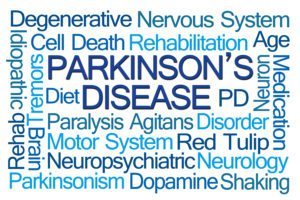5 Signs that Could Indicate Parkinson’s Disease
Elder Care Media PA
There are approximately 1 million people throughout the United States living with Parkinson’s disease and around 60 thousand people each year will get a new diagnosis of the disease. As with most conditions, early detection is important to ensure that your elderly parent gets the best care possible. By detecting the early possible signs of the disease as they develop you can get your parent into the doctor quickly and get them on the course of treatment that is right for them.
Some early signs that could indicate Parkinson’s disease include:
• Tremors. Likely the most recognizable of symptoms of Parkinson’s disease is tremors, impacting a large percentage of people who suffer from Parkinson’s disease. This is often one of the first symptoms that people experience during the early development of the disease. Though some people have perceptions of the tremors as being dramatic and impacting the entire body, this is not always the case. Instead, they can show up as just shaking of the hands or occasional movements of the limbs.
• Sleep disruptions. Elderly adults with PD often experience sleep problems. This can include tossing, turning, kicking, and flailing. Even for those who do not wake up during these movements, they can pose danger as they may cause your loved one to fall out of bed and hurt themselves.
• Loss of sense of smell. The sense of smell is one that is often taken for granted, but makes a major impact on daily life when it is reduced or lost. This loss could be an indication of PD when there is not a more common explanation, such as a cold or allergies that are blocking the nose. This should be particularly noted if your parent is having difficulty with specific scents, including bananas and licorice.
• Writing smaller. Handwriting can change slightly from time to time for a variety of factors, but if you notice that your parent’s handwriting has suddenly become much smaller and more crowded, it could be an early sign of Parkinson’s disease. Look at something that your parent has written and note if the letters are much smaller, the words are tighter, or they are filling the page more.
• Feeling dizzy. Some people are more prone to feelings of dizziness or fainting than others. If your aging loved one is not usually one to experience dizziness, but has started feeling faint or dizzy, or passing out, it could be linked to PD.
If your aging parent has been diagnosed with Parkinson’s disease, it may be time to consider elder care. Having an elderly home care services provider in the home with them ensures that your aging parent can get the personalized, attentive care that they need to live the highest quality of life possible even as they progress through the stages of Parkinson’s disease. This type of care can include physical assistance with mobility and transferring, dignified and respectful help with sensitive tasks such as bathing and toileting, and management of symptoms as they arise and progress.
Source: http://www.parkinson.org/understanding-parkinsons/10-early-warning-signs
If you or an aging loved one are considering Elder Care Services in Media PA, please contact the caring staff at True Direct Home Health Care today.
- How Home Health Providers Offer Education Amidst Physical Health Changes - March 5, 2024
- Spring Activities for Seniors - February 21, 2024
- How to Help an Older Loved One with Cataracts? - February 6, 2024

